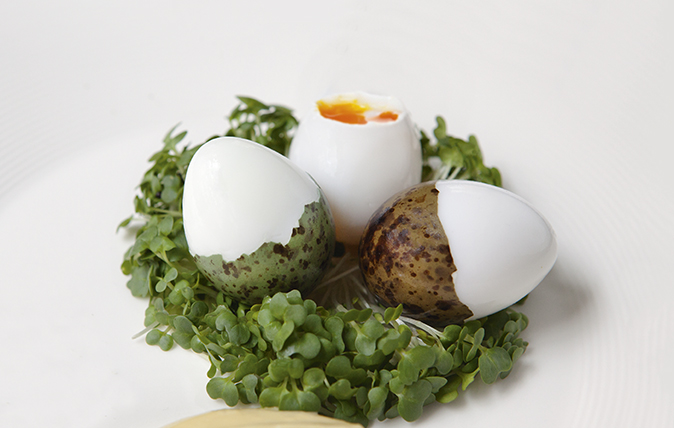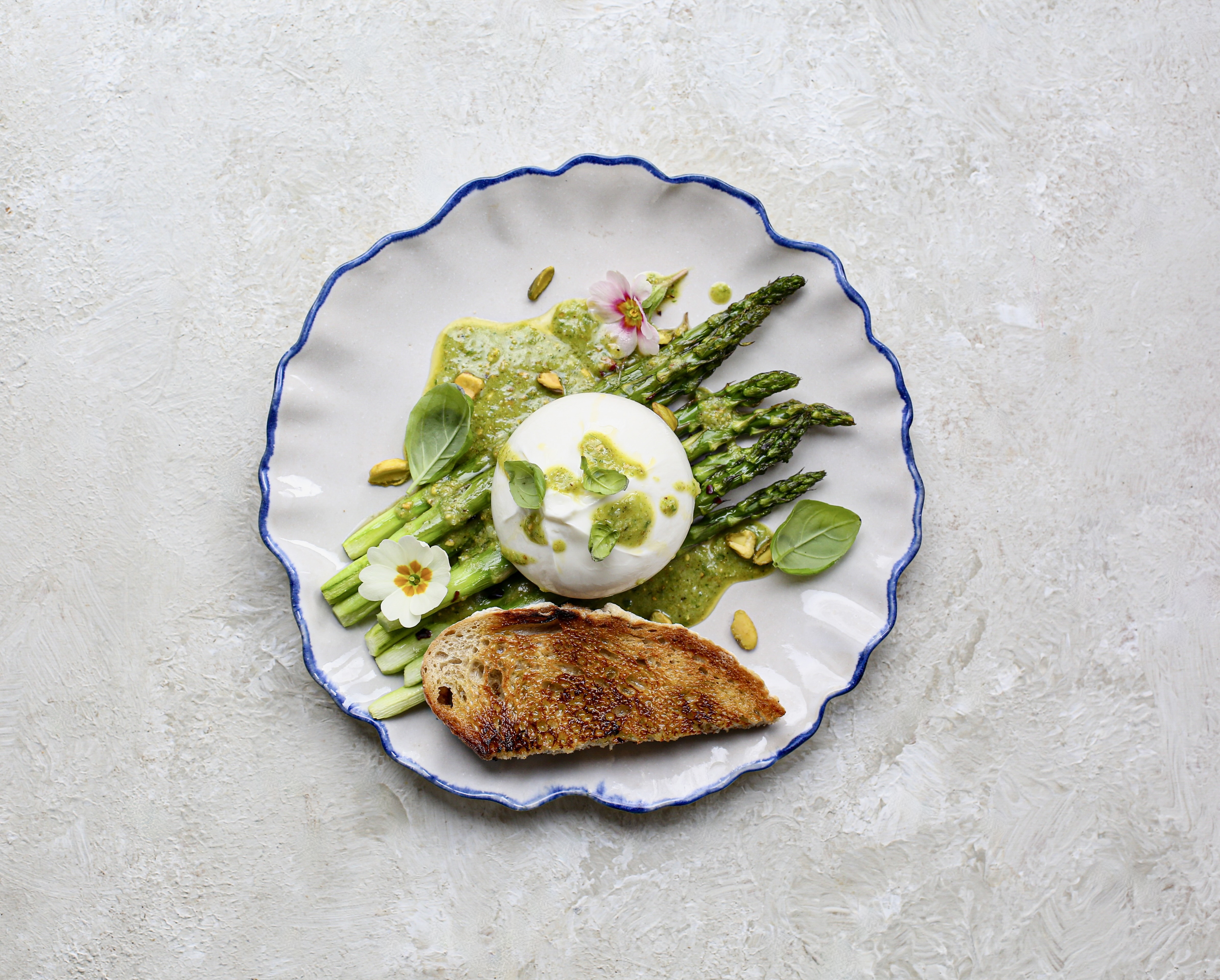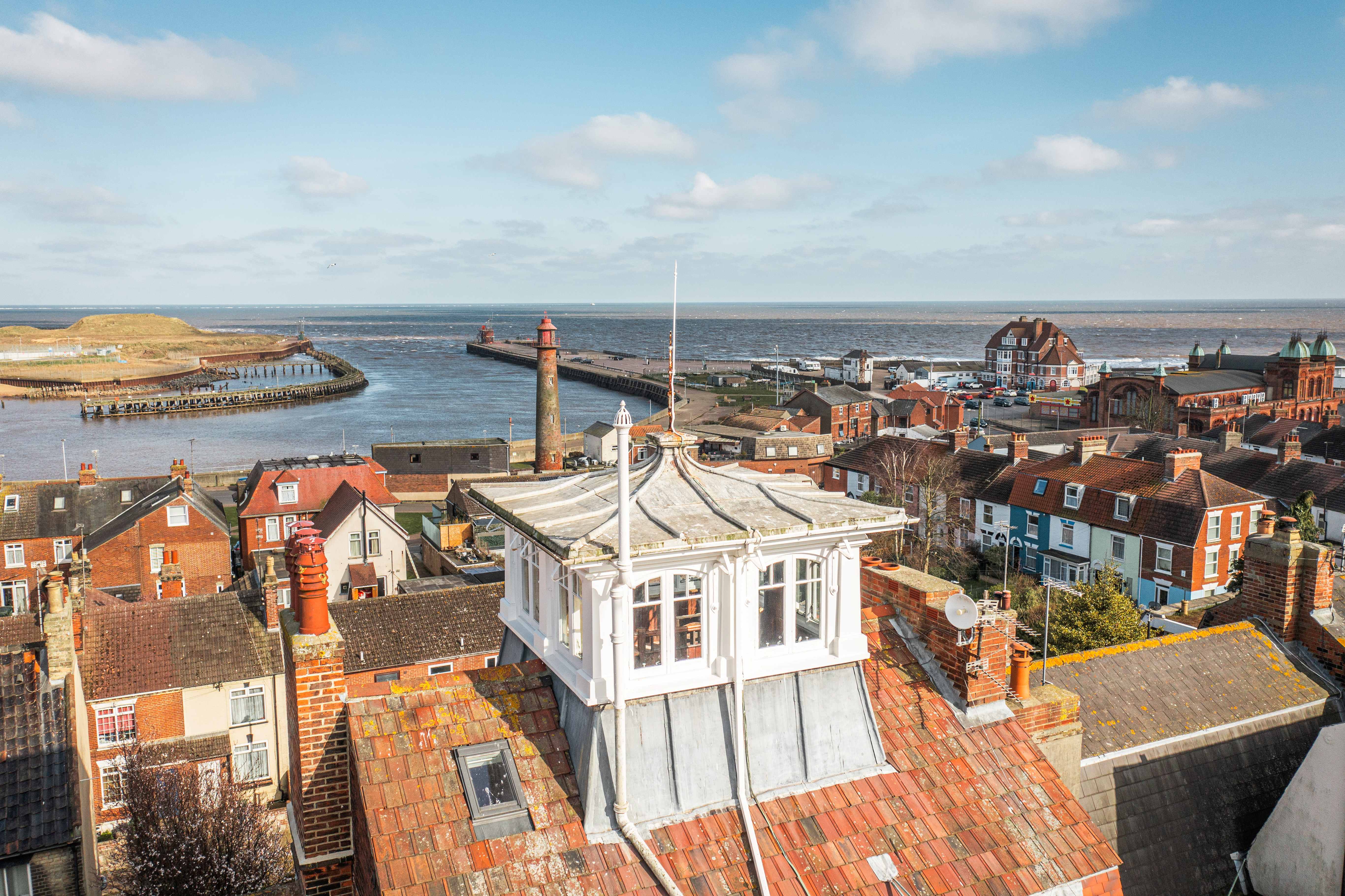Delicacy: black-headed gulls' eggs
Collecting the eggs of black-headed gulls is a mysterious affair, shrouded in secrecy and limited by licences.


Once evocative of seaside holidays and lazy summers, the sound of gulls is increasingly redolent of squawking chip stealers and splattered windscreens, but it’s important not to let one bad apple or, in this case, two—the herring gull and the great black-backed gull—spoil the whole box. Consider instead the smaller, more delicate and better-behaved black-headed gull, which lays the most exquisite sage-green speckled eggs with sunset-orange yolks that are, for three weeks of the year, the most expensive, sought-after eggs on the planet.
Despite its name, the black-headed gull doesn’t have a black head. For most of the year, its head is white, changing to a dark chocolate-brown in the summer and retaining a small black smudge to the rear of each eye in the winter.
Chroicocephalus ridibundus is a familiar sight on farmland and wetland habitats and its scientific name (meaning laughing gull) refers to its harsh cackle, which it likes to emit as it gathers in large parties. Nest building begins in early April and, by the middle of the month, a few of the more mature birds start to lay their glossy green-blue eggs. Sometimes, these early nests are overwhelmed by spring tides, but the gutsy little birds soon start again.
The harvesting of their eggs has been going on for generations. The Victorians collected them in their thousands and the practice was particularly widespread during the Second World War, when hens’ eggs were in short supply. Today, it’s a strictly controlled activity, carried out over six main sites: Keyhaven, Lymington and Pylewell marshes and the north Solent nature reserve in Hampshire as well as Barden Moor in North Yorkshire and Upper Teesdale in Co Durham.
Collectors—or ‘eggers’ as they are known—must hold a government licence, which is renewed annually and, during the season, must agree to be off the marshes by 9am Monday to Friday and by 11am at the weekends. The 25 or so licence holders, mostly salty old fishermen over retirement age, know every crack and crevice of the marshes, but they also know their gulls. They can tell when an egg is ‘addled’ and will often stop and help an eggbound gull that’s struggling to lay an egg by gently massaging it.
Garry Eveleigh, forager and author of Wildcook, remembers collecting eggs from the Spartina grass on his local foreshore at Lymington as a child. ‘Together with my elder brother, I would scour the marshy islands accessible at low tide. It was a real adventure, with birds dive-bombing us and black, oozing mud, but we always returned with buckets of eggs, which would be turned into an almost pink-coloured scrambled egg. In the days before licences were introduced, the marshes were packed with pickers and there was always someone who thought they had a particular right to an area.'
He describes the taste of the eggs as the ‘creamiest, richest flavour imaginable, with a subtle lingering aftertaste’. These days, he prefers them soft-boiled with a wild salad and home-made celery salt and, although he gave up collecting when the licences were introduced, he has many friends who still do.
Sign up for the Country Life Newsletter
Exquisite houses, the beauty of Nature, and how to get the most from your life, straight to your inbox.
Despite the dwindling number of collectors, gulls’ eggs are more popular than ever, their short season only adding to the allure. James Golding, chef director of The Pig Hotel in Brockenhurst in Hampshire has been serving gulls’ eggs for five years with homemade red celery salt and pickled samphire. ‘There is much more awareness of them now,’ he says, ‘and customers have started asking when they’re going to be in.’ Rex Goldsmith of The Chelsea Fishmonger, whose shop has been selling gulls’ eggs for more than 100 years, sells a few thousand every year, mostly to older customers. ‘They always ask the price and when I tell them they say: “Outrageous—I’ll take two dozen please”.’
In London, The Goring’s chef Shay Cooper will be boiling them and serving them with asparagus spears, smoked-rapeseed-oil mayonnaise and celery salt and on May 10, the annual Macmillan Gulls’ Egg City Luncheon will take place in the Merchant Taylors’ Hall, serving thousands of the eggs to 600 guests.
As the only legally controlled collection of wild avian eggs, the gathering of gulls’ eggs feels like an anachronism, but, according to Mr eveleigh, ‘it’s no different to collecting eggs from a chicken—the gulls will continue laying until the season comes to an end on May 15, when they will quickly lay three or four eggs and start to incubate. In 40 days, the chicks will be on the wing and, by the following February, ready to raise their own brood.’
In his opinion, the gulls face a far greater risk from the natural erosion of the marshes, meaning that they have to nest closer to the shoreline, making them easy prey for foxes. However, organisations such as the RSPB are concerned that collectors will disturb other nesting species and the future of licences remains uncertain. All the more reason to enjoy them while you can.
A fleeting delicacy
The gull’s egg season lasts from April 1 to May 15 and the eggs are available from selected fishmongers and fine restaurants. Licence holders can only gather a certain number of eggs and must record their daily total on a log sheet. In 2015, the number of eggs collected was recorded as 31,518 and the number sold 27,842. The cost can be anything from £4 to £10 per egg, depending on the outlet, which must also hold a special licence before it can sell them.
Where to buy them
Fine Food Specialist (online grocer) (020– 8627 2553; www.finefoodspecialist.co.uk) The Chelsea Fishmonger, London SW3 (www.thechelseafishmonger.co.uk; 020–7589 9432)
Where to eat them
The Goring, London SW1 (020–7396 9000; www.thegoring.com) Lyle’s, London E1 (020–3011 5911; www.lyleslondon.com) Le Caprice, London SW1 (020–7629 2239; www.le-caprice.co.uk) J. Sheekey, London WC2 (020–7240 2565; www.j-sheekey.co.uk) The Pig Hotel, Brockenhurst, Hampshire (01590 622354; www.thepighotel.com)
Country Life is unlike any other magazine: the only glossy weekly on the newsstand and the only magazine that has been guest-edited by HRH The King not once, but twice. It is a celebration of modern rural life and all its diverse joys and pleasures — that was first published in Queen Victoria's Diamond Jubilee year. Our eclectic mixture of witty and informative content — from the most up-to-date property news and commentary and a coveted glimpse inside some of the UK's best houses and gardens, to gardening, the arts and interior design, written by experts in their field — still cannot be found in print or online, anywhere else.
-
 Two quick and easy seasonal asparagus recipes to try this Easter Weekend
Two quick and easy seasonal asparagus recipes to try this Easter WeekendAsparagus has royal roots — it was once a favourite of Madame de Pompadour.
By Melanie Johnson
-
 Sip tea and laugh at your neighbours in this seaside Norfolk home with a watchtower
Sip tea and laugh at your neighbours in this seaside Norfolk home with a watchtowerOn Cliff Hill in Gorleston, one home is taller than all the others. It could be yours.
By James Fisher